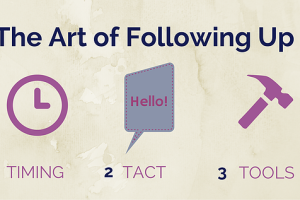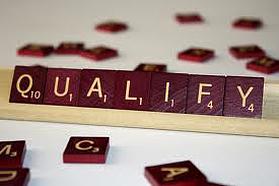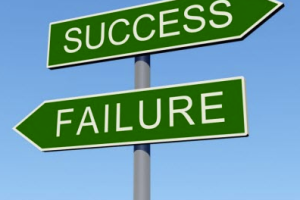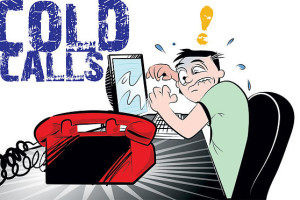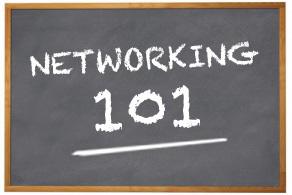It’s human nature to make excuses. When things don’t go quite the way we want or expect, our first instinct is not to self-critically evaluate what we could have done better or differently. We blame other people or circumstances beyond our control instead. We’d make more sales if only our prices were more competitive. We’d draw more business if we were better-resourced and could cover more territory. We’d close more sales if customers were more decisive and less wishy-washy about their needs. On and on the list goes. Instead of beefing up our strategy, we take the helpless stance and settle for lackluster performance.
What is an excuse, anyway?
For me, an excuse is any reason that is given for a lack of performance other than a statement that begins with the word ‘I’. It arises from our reluctance to take ownership of our failures, but it also prevents us from taking ownership over our improvement. Meanwhile, those who choose to make sales instead of excuses will run us out of business unless we learn to mitigate the effects of human nature.
Let’s talk about a few ways to go about that.
Establish a “no excuses” culture.
Chronic excuse making is a highly contagious disease—and a potentially fatal one, too. Lies and excuses build up on each other and create their own reality. After a while, people start believing their own excuses. It’s a slippery slope from there.
We allow one failure to frame how we approach the next opportunity, and then, when we replicate our mistakes and lose that second deal, we view it as confirmation that we were right about why we lost the first one, too. This distorted perspective puts intense downward pressure on our level of self-expectation, making it impossible for us to grow in our sales performance.
If we tolerate this kind of thinking, it won’t take long for it to become an ingrained cultural habit in our organizations.
That’s why we have to make sure we set realistic performance expectations in the first place. They should be challenging, to be sure; but they should also be achievable by the typical salesperson in our organizations. High-pressure sales environments demoralize salespeople by making them feel defeated from the beginning.
What’s worse, when we set the bar unrealistically high, we inadvertently supply our salespeople with at least one ready excuse for under-performance, and we take a whack at their job satisfaction (which is a critical motivator for self-improvement).
What we want is an environment where salespeople are visibly and infectiously motivated to reach (and exceed) their benchmarks because they know top performers are meaningfully rewarded—not just in terms of compensation, but also in terms of acceptance and praise by their peers.
Cultivating this kind of environment is not easy, but it begins with a “no excuses” attitude from us. That’s not to say that we should be obstinate when our salespeople express legitimate concerns, of course. Quite the contrary: we should be approachable and eager to address sales obstacles any time we can.
However, it should also be clear—both from stated policy and from informal peer pressure—that under-performers represent the minority voice, and when they are approached for feedback, their excuses will not be tolerated.
Focus on solutions, not obstacles.
Successful salespeople spend more time thinking about how to reach their goals than they do fretting about the deals they fail to close or the objections they receive from their customers. Sure, they give such things due consideration, but not for the sake of lamenting the “if only” circumstances they wish were different—the things that they imagine might make their jobs a little easier. No, such salespeople examine their failures critically, learning from their experiences in order to approach the same obstacles differently the next time. They’ve learned that every single one of the excuses their peers use can be solidly answered by those resolved to succeed.
To take a representative example, let’s consider the issue of price. “Our prices are too high” is perhaps the most common excuse under-performing salespeople offer when customers opt for a less expensive competitive offering. Yet price is seldom the primary or motivating factor behind someone’s final buying decision.
It only becomes a make-or-break issue when the salesperson with the more expensive offering fails to demonstrate superior value. Savvy salespeople recognize this, and so they make it their mission to demonstrate the value of their solution more concretely next time. Because they’re passionate about their products, they’ll try over and over again, doing it a little differently each time, long before they’ll accept the possibility that they have poor price-value alignment.
After all, sales are an ongoing effort – one that requires a positive attitude and persistent nature, even when faced with obstacles and rejection.
Sales growth specialist Danita Bye describes how successful salespeople are characterized by sisu, a Finnish word roughly meaning “guts and determination.” She represents this quality as “unbending will coupled with pragmatic flexibility—unwavering determination paired with knowing when to quit one course of action and pick up another.” Rather than withering under the pressure of adversity, the salesperson with sisu thrives, emerging stronger and more resilient as a result of overcoming obstacles. “Not that those with sisu don’t experience fear,” she writes. “But they put fear to the side, acknowledging its presence and denying its supremacy. […] Fear of failure is nothing compared with the regret of mediocrity.”
Instill an ethic of discipline.
Driven salespeople don’t have time for excuses.
Why?
Because they are keenly aware that, as Siembieda puts it, “If you’re making excuses, you’re not making calls.” They know that it takes time and mental energy to come up with justifications for their failures, and they’d simply rather spend those resources on making a second go at it instead.
They discipline themselves to keep working when others are ready to call it quits. They resist personalizing sales rejection, recognizing that value is inherently subjective. Instead of letting it bother them, they go to work on new value propositions.
They hold themselves “fully accountable” for their success. Early on in my career I learned the phrase, “don’t get caught up in the beautiful lie – believe the terrible truth. And it’s served me oh so well… being honest with yourself about where you succeed and thrive as well as where you still need work instead of searching for additional excuses that justify mediocre performance is how you will continue to improve.
But there’s more than that. No-excuse salespeople recognize that time is always their scarcest resource, and they budget it jealously. Because time is scarce, I always scheduling the most important daily sales tasks earlier in the day in order to ensure that they get done. I also recommend that taking a hard look at our personal calendars in order to identify and eliminate unimportant tasks and to carve out new time for more productive things that might otherwise get pushed to the back-burner—like prospecting for new business.
It’s easy for us to resort to the “I don’t have enough time” excuse, unless we’re already in the habit of scheduling seemingly mundane things like this into our daily and weekly routine. Even relatively small things like that help cultivate our enduring consciousness of how we’re using our time (and whether we’re getting any closer to our goals).
Hopefully the picture is becoming clear. Excuses are a waste of time and energy, but discipline and determination, coupled with a “no excuses” work environment, provide a powerful antidote to flagging sales performance.
The sooner we appreciate how much time we waste on excuses, the sooner we can get back to making those calls.


